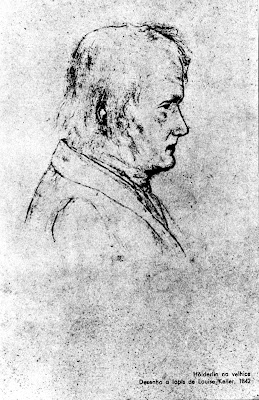Philosophical classics - Uneasiness
Desire.
§ 6. The uneasiness a man finds in himself upon the absence of any thing, whose present enjoyment carries the idea of delight with it, is that we call desire; which is greater or less, as that uneasiness is more or less vehement. Where, by the by, it may perhaps be of some use to remark, that the chief, if not only spur to human industry and action, is uneasiness. For whatsoever good is proposed, if its absence carries no displeasure or pain with it, if a man be easy and content without it, there is no desire of it, nor endeavour after it; there is no more but a bare velleity, the term used to signify the lowest degree of desire, and that which is next to none at all, when there is so little uneasiness in the absence of any thing, that it carries a man no farther than some faint wishes for it, without any more effectual or vigorous use of the means to attain it. Desire also is stopped or abated by the opinion of the impossibility or unattainableness of the good proposed, as far as the uneasiness is cured or allayed by that consideration. This might carry our thoughts farther, were it seasonable in this place.
JOHN LOCKE, THE WORKS OF JOHN LOCKE IN 9 VOLS (1824)
VOLUME I: AN ESSAY CONCERNING HUMAN UNDERSTANDING (PART I)
§ 6. The uneasiness a man finds in himself upon the absence of any thing, whose present enjoyment carries the idea of delight with it, is that we call desire; which is greater or less, as that uneasiness is more or less vehement. Where, by the by, it may perhaps be of some use to remark, that the chief, if not only spur to human industry and action, is uneasiness. For whatsoever good is proposed, if its absence carries no displeasure or pain with it, if a man be easy and content without it, there is no desire of it, nor endeavour after it; there is no more but a bare velleity, the term used to signify the lowest degree of desire, and that which is next to none at all, when there is so little uneasiness in the absence of any thing, that it carries a man no farther than some faint wishes for it, without any more effectual or vigorous use of the means to attain it. Desire also is stopped or abated by the opinion of the impossibility or unattainableness of the good proposed, as far as the uneasiness is cured or allayed by that consideration. This might carry our thoughts farther, were it seasonable in this place.
JOHN LOCKE, THE WORKS OF JOHN LOCKE IN 9 VOLS (1824)
VOLUME I: AN ESSAY CONCERNING HUMAN UNDERSTANDING (PART I)


Comentários